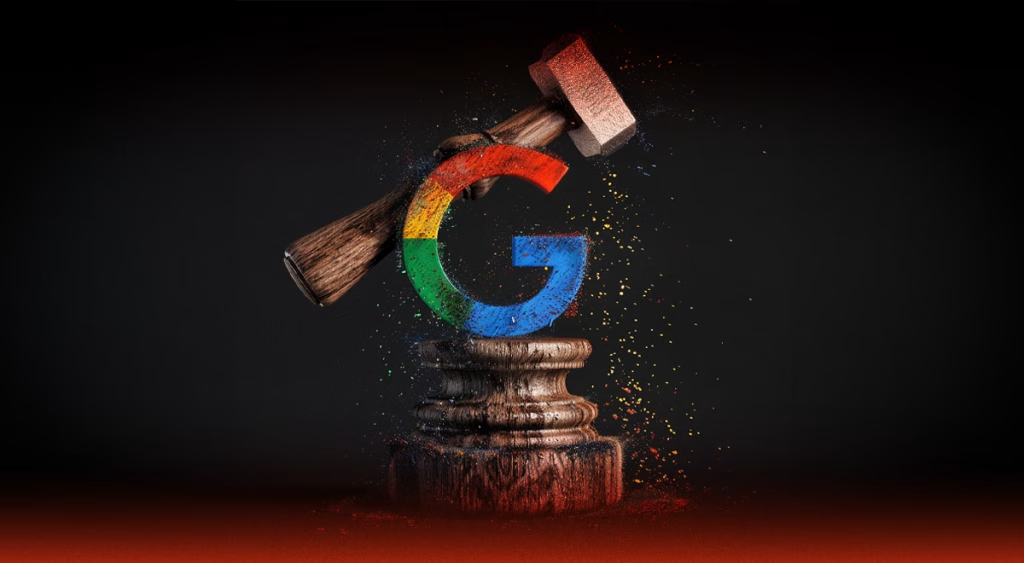
n just 25 years, Google has gone from being just another dorm-room tech project to a tech behemoth that changed the world. From revolutionizing how we find information online through its search engine to navigating the world and democratizing smartphone access via Android, Google has integrated itself into almost every aspect of our digital lives.
Along the way, the company has faced a backlash around increasing data privacy concerns. There was even high-profile drama when the tech giant tried to quietly remove the famous “Don’t be evil” mantra from its code of conduct. Despite these challenges, Google’s innovations, like Google Earth and targeted advertising, redefined technological norms while its venture into AI looks to lead the way toward an AI future.
However, an antitrust trial is threatening to overshadow Google’s 25-year legacy. The case raises questions about whether Google’s dominance was built on stifling competition and undermining innovation. But what does all this mean for Google?
Antitrust accusations: the significance of Google’s $20 billion payment to Apple
Court documents unsealed in the Department of Justice’s antitrust case against Google revealed that Alphabet paid Apple $20 billion in 2022 to remain the default search engine in the Safari web browser. This payment, which accounted for over 17% of Apple’s 2020 operating income, underscores the immense importance of this arrangement to both tech giants, as Google’s default status in Safari ensures dominant access to the US online search market.
Despite Microsoft’s attempts to sway Apple with offers of a 90% revenue share from Bing advertising, Apple has remained committed to its relationship with Google.
Destruction of evidence: how Google’s internal chats stirred antitrust controversy
The DOJ also alleges that Google destroyed thousands of internal chats crucial to the trial. It suggests that Google encouraged employees to turn off chat their histories, erasing sensitive conversations related to its business practices – particularly those hinting at efforts to maintain its search engine dominance.
The DOJ argues that if proven, this destruction of evidence could significantly impact the case outcome, indicating Google’s intent to stifle competition and establish a monopoly in the market.
Judge Amit Mehta’s scathing criticism of Google’s behavior underscored the severity of the alleged document destruction. In response, Google’s legal team argued that the missing chats did not contain relevant information and that they had disclosed their chat retention practices to at least one state involved in the case.
Despite Google’s defense, this incident has raised serious questions about the company’s business practices, casting a shadow over its reputation. The case, with its potential historical consequences, brings to the forefront significant issues about competition, digital markets, and corporate responsibility, sparking concerns about the transparency of tech giants.
Judge Mehta questions Google’s dominance in closing antitrust arguments
US District Judge Amit Mehta has grilled both the Department of Justice (DOJ) and Google’s attorneys. Mehta emphasized the critical issue is whether rival platforms like TikTok and Facebook can effectively substitute for Google in search advertising. The DOJ contends that Google’s multibillion-dollar payments to maintain default search engine status on devices like Apple’s iPhone reveal monopolistic power, as these exclusive deals severely limit competition.
As the judge deliberates on whether Google violated antitrust laws, there’s increasing speculation about what will happen next. The judge could demand changes in Google’s business practices, such as the end of its exclusive agreements. They could even be instructed to break up parts of Alphabet’s search empire. But if this story sounds familiar, it’s because we have been here before.
Antitrust déjà vu: how Microsoft’s settlement paved the way for Google’s dominance
In a fascinating twist of history repeating itself, Google’s rise to prominence partly resulted from Microsoft’s settlement under antitrust laws. Microsoft was targeted in the 1990s after the Justice Department and 20 state attorneys general filed a complaint, arguing that the tech giant had used its dominant position to stifle competition, mainly through the bundling of Internet Explorer with Windows during the infamous browser wars.
Despite settling in 1994 to limit its control over competitors, Microsoft continued to leverage network effects and strategic partnerships to expand its dominance. The lawsuit resulted in a significant settlement that prevented Microsoft from locking out competitors entirely while not breaking it up, paving the way for a new generation of web companies.
The settlement created breathing room for web companies like Google to flourish. Ironically, Google’s dominance is now being scrutinized under the same legal framework that restrained Microsoft.
Google, Amazon, Apple, and Meta: The US government’s fight to rein in big tech
The prevailing belief that regulators and lawmakers lag behind technological innovation is already beginning to shift toward more aggressive regulatory scrutiny, with landmark antitrust cases targeting the usual suspects in big tech.
As Judge Amit Mehta prepares to deliver his verdict on Google’s antitrust conduct, something much bigger is gaining momentum. For instance, seventeen states have accused Amazon of leveraging its marketplace monopoly to squeeze sellers and manipulate prices. At the same time, Apple is also facing scrutiny for using its smartphone monopoly to stifle competition and inflate prices.
Elsewhere, Meta’s acquisitions of Instagram and WhatsApp have sparked renewed calls for breaking up its social media empire. Collectively, these cases represent a broader push to rein in big tech. While the 1990s battle against Microsoft cleared the way for Google, the current proceedings could redefine how tech giants operate and compete in the next chapter of this digital tale.




